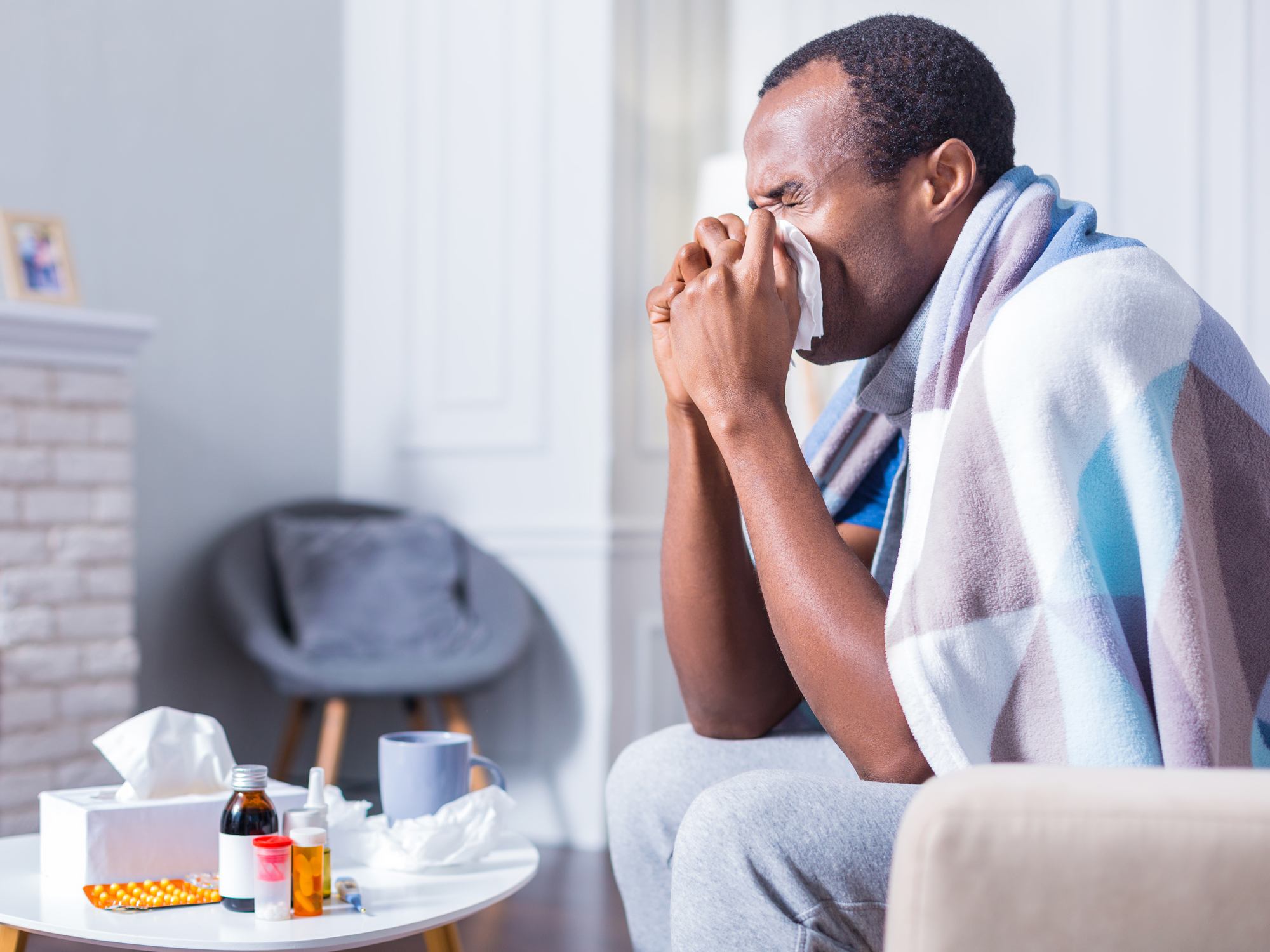Get Easy Health Digest™ in your inbox and don’t miss a thing when you subscribe today. Plus, get the free bonus report, Mother Nature’s Tips, Tricks and Remedies for Cholesterol, Blood Pressure & Blood Sugar as my way of saying welcome to the community!
Common infections that increase your stroke and heart attack risk

When you get over an infection, you’re relieved that the worst is behind you…
The discomfort. The pain. The worry that it will progress into something more serious.
But you’re not completely in the clear yet…
There’s a post-infection pitfall to be aware of. And a pretty serious one, at that.
In the days, weeks and months ahead, you have a much higher risk of having a stroke or heart attack.
Get ready for three months of heart health danger
A recent study published in the Journal of the American Heart Association showed that people who get pneumonia, other respiratory infections, urinary tract, skin and blood infections have a higher risk of stroke and heart attack for as long as three months afterward.
Researchers looked at health data from 1,312 people who had a heart attack or another type of coronary event, and 727 people who had an ischemic stroke (the type caused by a blood clot). Here’s what they noticed…
A whopping 37 percent of people with major heart events had an infection in the prior three months. And an equally astounding 30 percent of stroke sufferers had infections in the three months before.
Why do infections make such a big difference in stroke and heart attack risk?
The answer is inflammation. When your body’s fighting off an infection, it triggers an inflammatory reaction, which affects blood flow to the brain.
More specifically, an infection triggers the release of more white blood cells. But this also increases the stickiness of platelets, blood cells involved in clotting. The result is more clotting, which means less blood flow to the heart and brain.
Protect yourself from post-infection inflammation
Now that you’re aware of this heightened risk, you can watch out for any unusual symptoms in the months following an infection.
Your risk is highest within the first two weeks after your infection. So, be especially alert during those two weeks.
Since the heightened risk is caused by inflammation, it might be helpful to follow an anti-inflammatory lifestyle in the weeks and months after your infection. You can do that by:
- Repairing leaky gut. Leaky gut is a condition where an ultra-permeable intestinal wall allows undigested food and bad bacteria to escape, causing inflammation throughout your body. Research shows spore-based probiotics can plug gut leaks and reduce inflammation.
- Eating lots of anti-inflammatory foods. Some of the best inflammation-fighting foods are salmon, grapes, celery, blueberries, garlic, olive oil, tea, ginger, rosemary and turmeric.
- Avoiding inflammatory foods. Processed foods, foods containing trans-fats, refined carbs, sugary foods and deep-fried foods all fuel inflammation.
- Exercising. Getting plenty of movement daily keeps inflammation levels down.
- Taking time to destress. Stress triggers the release of the hormone cortisol, which increases inflammation in your body. Counteract the stress response with relaxing activities like meditation, yoga, biofeedback, acupuncture and acupressure.
Editor’s note: There are perfectly safe and natural ways to decrease your risk of blood clots including the 25-cent vitamin, the nutrient that acts as a natural blood thinner and the powerful herb that helps clear plaque. To discover these and other secrets of long-lived hearts, click here for Hushed Up Natural Heart Cures and Common Misconceptions of Popular Heart Treatments!
Sources:
- Infections may be a ‘trigger’ for heart attack, stroke — American Heart Association
- Inpatient and Outpatient Infection as a Trigger of Cardiovascular Disease: The ARIC Study — Journal of the American Heart Association
- 15 Simple Ways To Create An Anti-Inflammatory Lifestyle — MindBodyGreen
- Six Keys to Reducing Inflammation — Scripps














